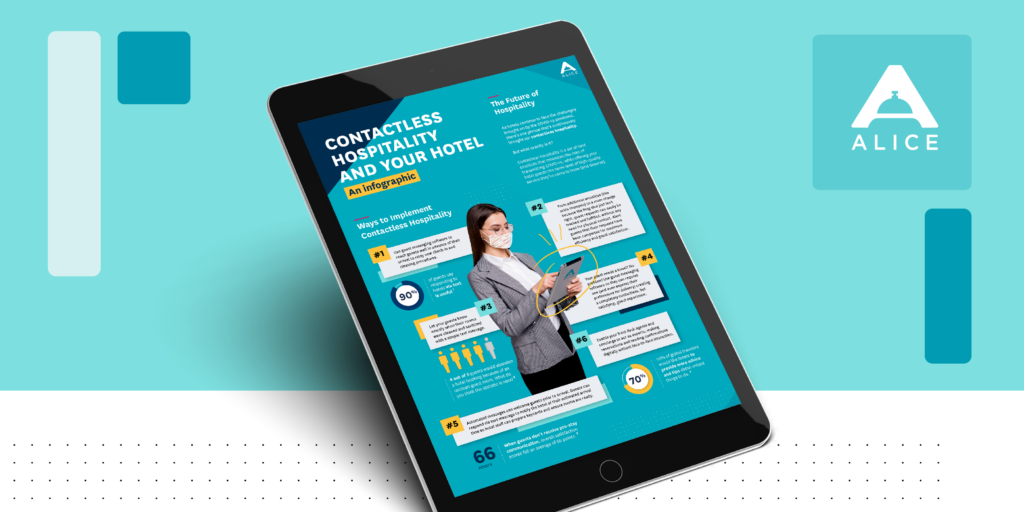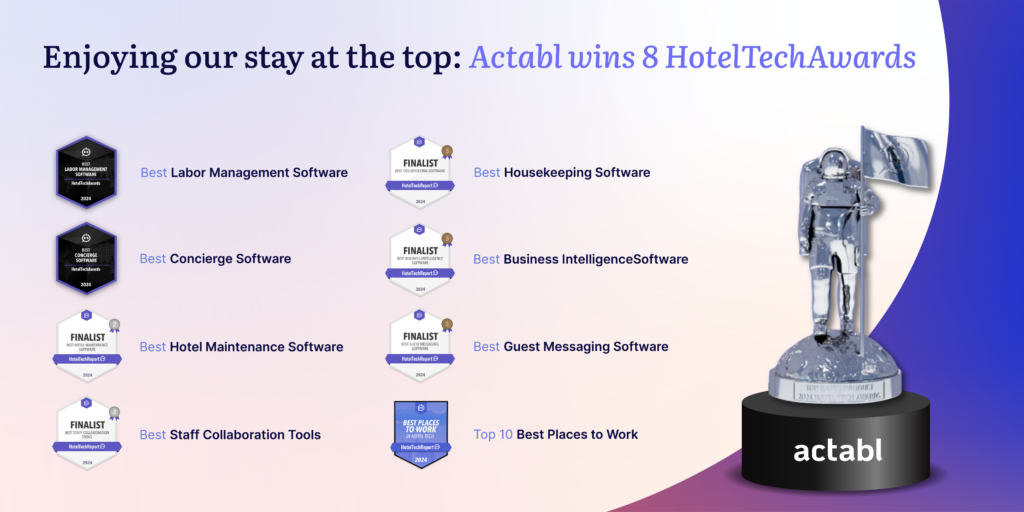
The Future of Hotels: Contactless Hospitality
As hotels continue to face the constant challenges brought on by coronavirus, there’s one phrase that’s been continuously brought up: contactless hospitality. But what exactly is it? In short, contactless hospitality is a set of best practices that minimizes the risks of transmitting COVID-19, while offering your hotel guests the same level of high-quality service they’ve come to know (and deserve).
COVID-19 has forced hoteliers to change many of their operating procedures, staffing patterns, and marketing tactics. New SOPs are being created in hotels around the world to enforce social distancing, to keep guests and staff safe, and to stay in compliance with local, state and national guidelines. But the one thing that can’t change is a hotel’s ability to offer superior service. Contactless hospitality enables hoteliers to meet guest expectations.
Check out our latest infographic highlighting Contactless Hospitality and Your Hotel
Ways to Implement Contactless Hospitality
While there is a lot of industry information encouraging hoteliers to adopt contactless hospitality, there isn’t much information about how to implement contactless services in a hotel. That’s what we’re here for — the “how. .
- Message your guests before, during and after their stay (use one of our text message templates) to let them know that your hotel staff is ready to assist them at anytime
- Track guest requests and give status updates to your guests so they know they haven’t been forgotten. Guests can rest assured knowing that your hotel is taking care of them
- Enable your front desk agents and concierge to provide contactless hospitality by emailing or texting itineraries and reservations confirmation to guests. This reduces the amount of face to face interactions
Why is it important?
Contactless hospitality is the future. The hotel industry is changing. Contactless hospitality is not only one step in your COVID-19 response plan, but it is the way of the future. Hotels are adapting and leveraging technology to streamline their operations, unify siloed departments, and maximize their staff’s productivity – all without sacrificing exceptional service standards.
How Software Helps
- Focus on What Matters. Improve staff productivity with software so you can make a greater impact
- Operate Efficiently. Quickly respond to guest requests and complaints with software to satisfy both their stated (and unstated) needs.
- Stay Organized. Use software to keep track of restaurants, vendors and tour operators that are open, safe, fun, can be reserved, and are operating with appropriate COVID-19 response procedures in place. Provide guests with personalized recommendations for trusted and brand-compliant partners.
Software will play a vital role for hotels that plan on providing contactless hotel services and hospitality for their guests. Delivering contactless hospitality, without sacrificing service will be the key.
How to Prove Your Hotel is Prepared For a Contactless Experience
Before COVID-19, guests generally trusted that their hotel was up to code, had proper emergency procedures and was cleaned daily. But now, the bar has been raised exponentially. Staying safe from COVID-19 exposure within a hotel is one of guests’ biggest concerns. Hotels must prove to their guests that they can keep them safe, and that throughout their stay, they can provide exceptional service with limited face to face interactions.
- Put Notices on Your Website to Publicize Your Response Protocol
- Communicate with Your Guests in Advance of Their Arrival
- Elect a Safety and Cleanliness Officer
Read more about proving your hotel is prepared to offer a contactless experience.
How Can You Deliver Contactless Hospitality?
With the proper technology, contactless hospitality can (and should) enable hotels to offer guests a fantastic guest experience. Every department in your hotel has always been an active participant in delivering excellent service and now is no different.
Both front of house and back of house hotel departments can play an active role in delivering contactless hospitality to hotel guests. Reach out to guests before and throughout their stay to make sure they have all the information they need. Enable your concierge to provide contactless hospitality with guest services software. Strategically time when housekeeping room attendants clean a room and let your guests know about it in advance so they aren’t worried about social distancing.
How ALICE Helps
ALICE is the all-in-one software solution that enables hotel staff to do the most impactful work, without all the guesses. Throughout your hotel, from bell staff, to room attendants, to front desk staff, face to face interactions are being reduced in frequency, shortened, or eliminated, when possible. ALICE provides contactless technology options for hotels to communicate with guests.







